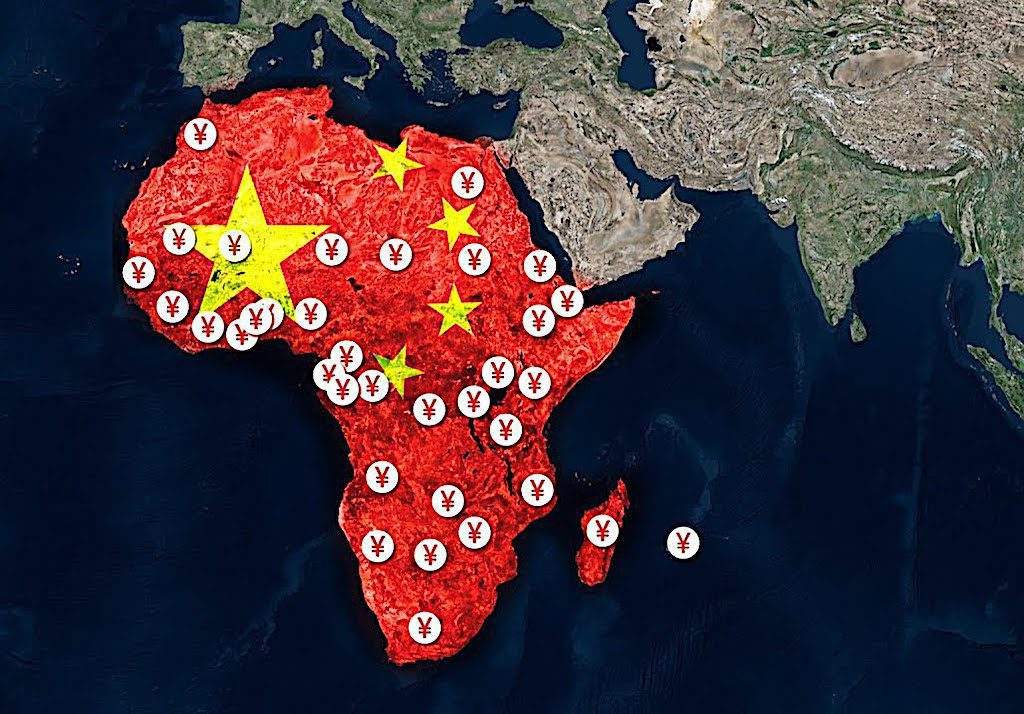The International Monetary Fund (IMF) has issued a cautionary note to Nigeria and other countries in Sub-Saharan Africa regarding the potential risks of close economic ties with China. This warning, which comes amidst reports that Nigeria’s debt to China has reached $4.73 billion, highlights the need for countries to carefully consider their borrowing decisions.
Nigeria’s increased indebtedness to China is evident from the data provided by the Debt Management Office (DMO). As of June 30, 2023, the country’s debt to China had risen by $800 million in just one year, reaching a total of $4.73 billion. These loans have been utilized for financing various infrastructural projects, including power generation, railways, water supply, airport terminals, agricultural processing, and communication.
It is important to note some of the major projects that have been executed with these Chinese loans. They include the Nigerian National Public Security Communication System project, the Wu-Kaduna section of the railway modernization project, the Abuja light rail project, the Nigerian Information and Communication Technology infrastructure backbone project, the expansion of airport terminals in Abuja, Lagos, Kano, and Rivers, the Zungeru hydroelectric power project, the parboiled rice processing plants project, the Lagos-Ibadan section of the railway modernization project, and the rehabilitation/upgrading of the Abuja-Keffi-Markurdi road project.
China’s economic ties with Nigeria have strengthened considerably in recent years. According to Chinese Ambassador to Nigeria, Cui Jianchun, bilateral trade between Nigeria and China has increased by nearly 142% from 2016 to 2021. In the first ten months of 2022 alone, the bilateral trade volume reached $20.04 billion. At present, China is Nigeria’s largest source of imports, while Nigeria ranks as China’s third largest trading partner in Africa.
While the economic partnership between China and Sub-Saharan African countries has been mutually beneficial, the IMF’s latest Regional Economic Outlook highlights potential vulnerabilities. The report emphasizes the adverse effects of China’s economic slowdown on its trading partners in Sub-Saharan Africa, including Nigeria.
The IMF emphasizes that China’s reduced growth and risk aversion may result in a decline in its financial support to African countries, impacting infrastructure funding in the region. China has become a major source of infrastructure financing for African countries since the early 2000s. In fact, its share of total sub-Saharan African external public debt has increased from less than 2% before 2005 to about 17% in 2021.
Five countries, including Angola, Kenya, Zambia, Cameroon, and Nigeria, account for over half of Sub-Saharan African debt to China. Additionally, the IMF notes a correlation between bilateral trade volume and lending disbursement between China and Sub-Saharan African countries, indicating that countries with higher trade volumes with China receive more loans from the Chinese government.
While Chinese loans and foreign direct investment (FDI) have supported economic development in Sub-Saharan Africa, concerns have been raised about the terms and conditions of Chinese loans. The IMF points out that Chinese lenders do not systematically document loans, resulting in significant data gaps and potential lack of transparency.
It is worth mentioning that Nigeria has consistently highlighted the lenient terms of its loans from China. However, the controversial “waiving sovereignty” clause in the commercial loan agreement signed between Nigeria and the Export-Import Bank of China has raised concerns. The Nigerian government clarified that the clause does not cede sovereignty but provides provisions to protect China’s interests in cases of loan recovery.
Amidst these warnings from the IMF, some economists and financial analysts believe that Nigeria has little to worry about regarding economic ties with China. They argue that the Chinese economic slowdown is not severe enough to significantly impact Nigeria, and the country can always find alternative trading partners if needed.
Regardless of differing opinions, it is crucial for Sub-Saharan African countries, including Nigeria, to adapt to evolving economic ties and reduce their dependency on external sources by strengthening regional trade integration and economic diversification. The IMF recommends the adoption of robust policy frameworks to reduce vulnerabilities and the creation of favorable business environments.
In conclusion, the cautionary message from the IMF serves as a reminder for countries to carefully consider the risks and implications of their economic ties with China. Moving forward, it is essential for countries in Sub-Saharan Africa, including Nigeria, to navigate these economic challenges prudently, ensuring long-term sustainability and growth.
